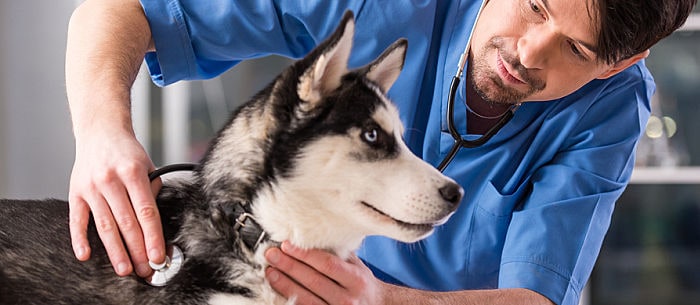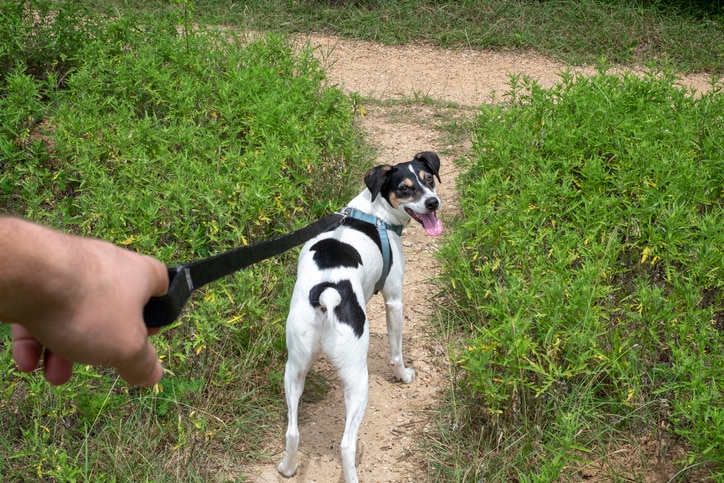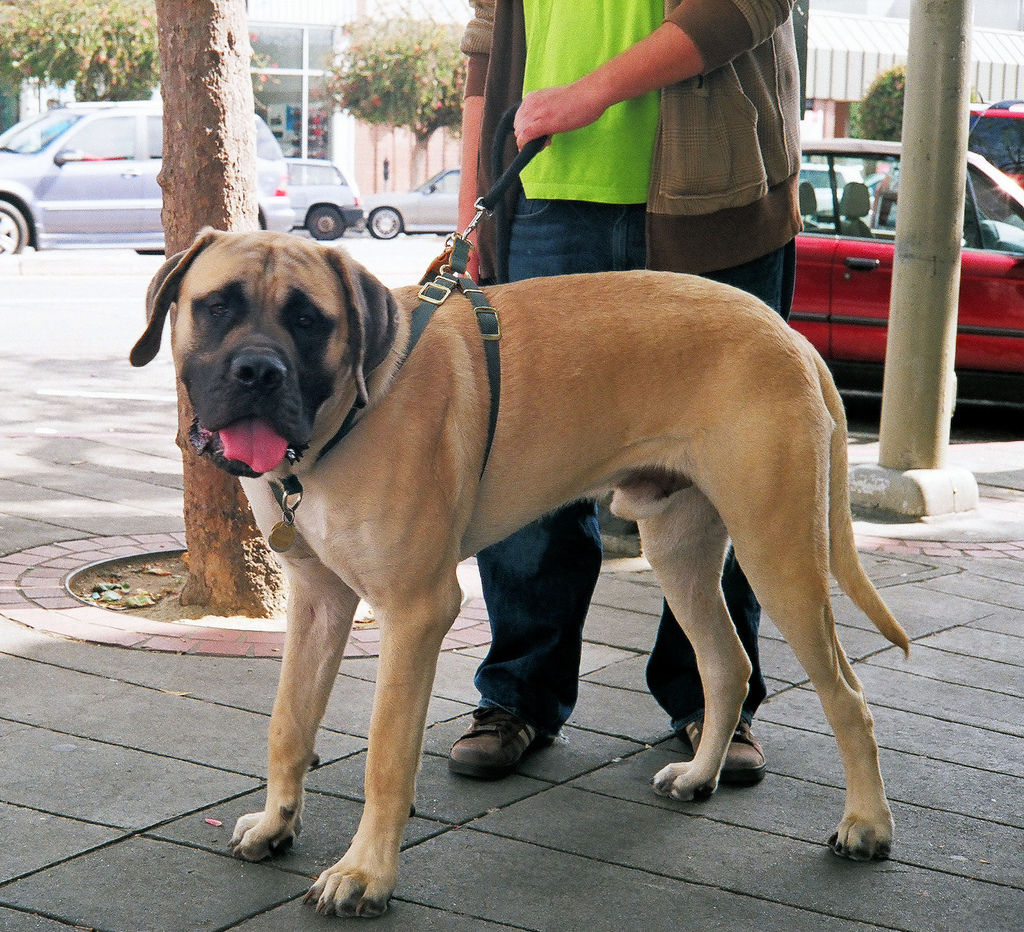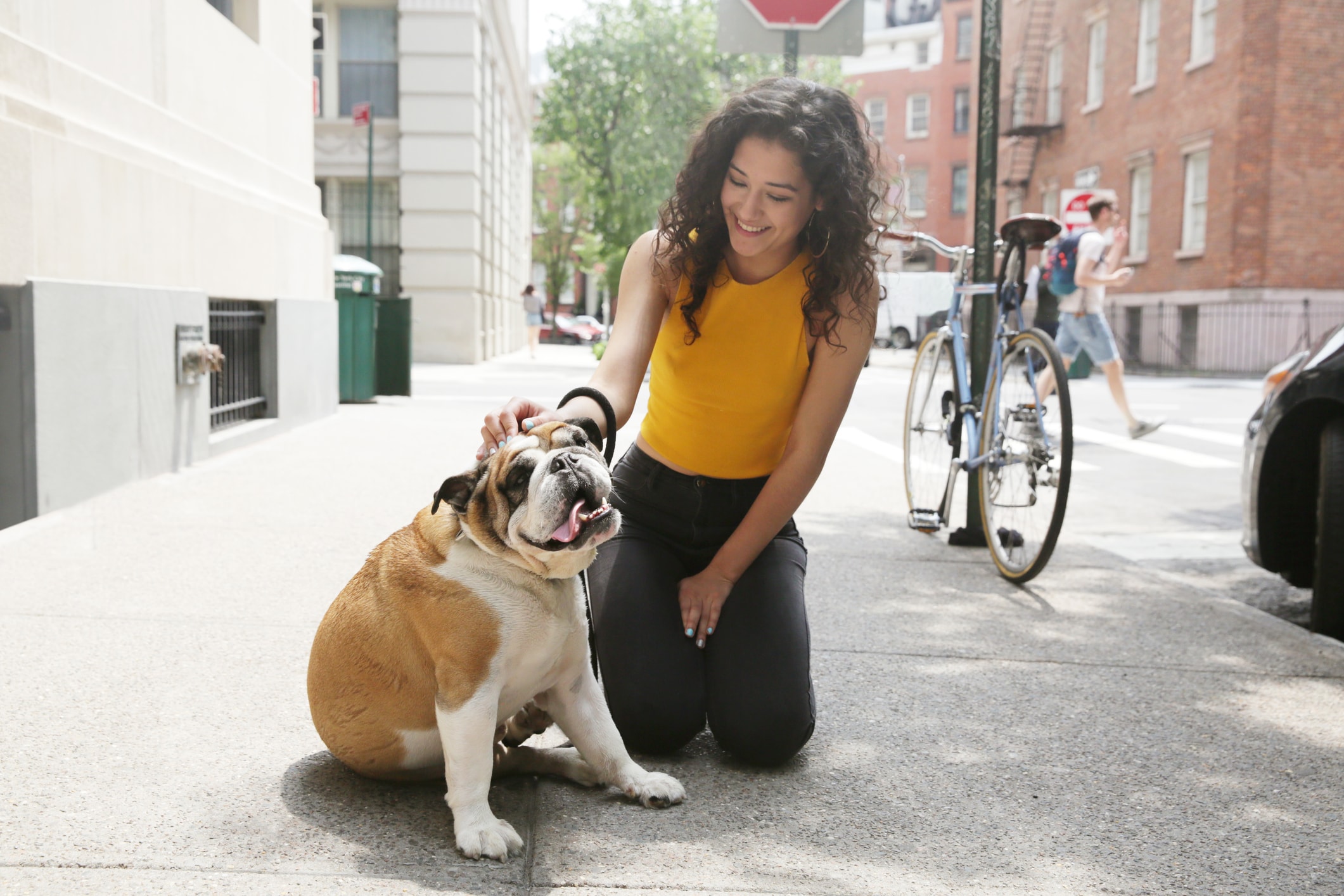Help, my dog keeps coughing! It’s a common complaint at most vet offices, and chances are you’ve been there before. It’s a common problem, but kennel cough is not always the culprit. In fact, it’s only one of many possible reasons your dog is coughing:
- Common Cold
Did you just say, “Help, my dog keeps coughing?” It might be a cold. The inflammation from the infection can cause irritation that leads to coughing. As with people colds, time and rest are the best remedies. It will eventually run its course. Make sure to offer plenty of fluids to help soothe your dog’s sore throat.“Dogs get colds for the same reasons people do: they get exposed to an infectious organism,” says Coleen Johnston, veterinarian and co-founder of PawsLikeMe. “The organism gets into the upper respiratory tract, and if the dog’s immune system is unable to effectively fight it off before it multiplies, they get sick.”
- Acid Reflux
Dogs get acid reflux just like humans, and the causes may be similar. If your dog overeats, or his food does not agree with him, it may be time to exercise portion control and perhaps switch to a more gentle food. Consult your vet on which foods are best for a dog with a sensitive tummy. Changing the time of day that your dogs eats may help as well. Also keep in mind that you should never feed your dog table scraps. Human food is too rich for dogs and is harder to digest. - Irritation from a Foreign Object
Dogs like to snoop around trash and get into things in the yard. They are curious by nature. This sometimes leads to them ingesting things other than food. Throat irritation from a foreign object is a common cause for coughing. Often times, your dog will expel the object himself.But if he ingests it, your will need to take your dog to the vet to be sure it is not stuck in his intestinal tract, which can be very dangerous. Symptoms of a swallowed foreign object include diarrhea, vomiting and loss of appetite. In extreme cases, there may be blood in the stool or in the vomit.
- Heart Disease
Heart disease is common in older dogs and may be the culprit behind excessive coughing. Other symptoms include fainting due to poor circulation, weight loss or weight gain, and poor circulation. You may also notice a change in gum or tongue color due to lack of oxygen. The only way to rule out heart disease is to take your dog to the vet for further testing. - Fungal Infections
Dogs love to sniff, which means they can pick up lots of irritants (like airborne pollen) that can lead to fungal infections. You’ll need to see the vet to rule this out, but if he has any type of sinus issue or throat irritation, you can use a humidifier like you would with a human.“Use a humidifier in a small room a few times a day to help keep the lining of the nose and throat moist,” says Dr. Denise Petryk, director of veterinary services at Trupanion. “Nebulizers also work. It’s also a great idea to take your dog into the bathroom during shower time to have a hot-steam session. Steam and increased humidity treatments are great ideas two to three times daily for 5 to 20 minutes.”
- Distemper
Distemper is a highly contagious canine disease that can be fatal. The first signs of distemper include coughing, fever and erratic behavior. The best defense is to be proactive. “Vaccines for viruses are much more effective at fully preventing disease and provide very long term immunity — at least three years after the initial series and maybe even longer,” says Johnston. - Cancer
Certain cancers, such as lung cancer, can cause coughing due to irritation in the lungs and shortness of breath. Other symptoms include coughing up blood, loss of appetite, weight loss, pain and an overall loss of energy. Tests can determine how far along the cancer is and if it is treatable. Although lung cancer in dogs is rare, it can metastasize if not caught in time. Routine trips to the vet for physicals can help catch cancer in early stages. - Parasites
Heartworms and roundworms are parasites that can cause persistent coughing for dogs. They can be prevented with topical creams, dewormers and pills. While some worms can be tolerated in small numbers, many worms can cause serious problems. If your dog has roundworms, you will usually see them in your dog’s stool.If he has heartworms, this may be more difficult to determine because they don’t show up until the disease is very advanced. When they do show, the symptoms of roundworm are very similar to those of heart disease.
When to Take Your Dog to the Vet
If your dog shows signs of labored breathing, lethargy, diminished appetite or a lack of interest in water, or if the cough persists or gets worse over time, it may be time for a visit to the vet. When in doubt, always put a call in to your dog’s healthcare provider. It will put your mind at ease and may help save your dog. Never guess what a problem may be. Leave it to the professionals to do the diagnosing.
If you know why your dog is coughing, let any caretakers know if there are any symptoms they should look out for that may mean something is wrong and make sure they have full instructions regarding any kind of treatment or medication your dog might need. And be sure that the dog sitter keeps your dog away from other dogs — especially if you’re not sure why she’s coughing.
To learn more about kennel cough, read Kennel Cough in Dogs: Everything You Need to Know.
Christina Montoya Fiedler is a Los Angeles based parenting writer living with her two sons, one fury baby, and two feathered friends.
* This article is for general informational purposes only. It is not intended nor implied to be providing medical advice and is not a substitute for such advice. The reader should always consult a health care provider concerning any medical condition or treatment plan. Neither Care.com nor the author assumes any responsibility or liability with respect to use of any information contained herein.





